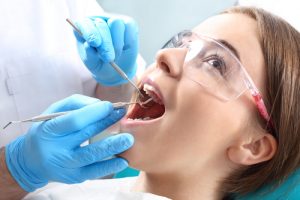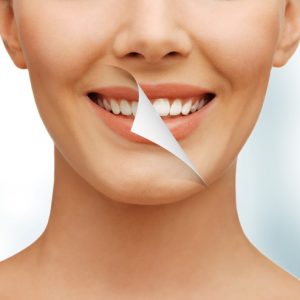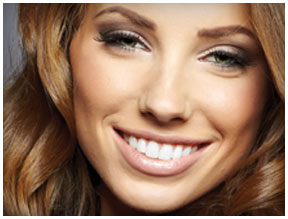 Have you considered straightening your teeth as an adult? Do you have reservations that are stopping you from giving yourself the green light? It’s time to learn about the many benefits of Invisalign braces for adults. It is possible to straighten your smile without having a metal mouth. (more…)
Have you considered straightening your teeth as an adult? Do you have reservations that are stopping you from giving yourself the green light? It’s time to learn about the many benefits of Invisalign braces for adults. It is possible to straighten your smile without having a metal mouth. (more…)
150 PURCHASE ST. STE1
RYE, NY 10580
 Porcelain tooth crowns are so much more than a cap for a tooth that has undergone root canal therapy. A versatile restorative dentistry solution, porcelain crowns are durable and natural-looking. Crowns repair unsightly teeth and help them blend into your smile. (more…)
Porcelain tooth crowns are so much more than a cap for a tooth that has undergone root canal therapy. A versatile restorative dentistry solution, porcelain crowns are durable and natural-looking. Crowns repair unsightly teeth and help them blend into your smile. (more…)
 If you’re a man or woman of a certain age, you may be lamenting all the ways your body is betraying you. One of the top complaints of adults? Old-looking teeth. Deteriorating oral health – cosmetic and functional – is a common side effect of aging but, thanks to porcelain veneers, living with teeth you don’t love isn’t necessary. In fact, with the right Rye dentist on your side, you can look years younger with a personalized smile makeover. (more…)
If you’re a man or woman of a certain age, you may be lamenting all the ways your body is betraying you. One of the top complaints of adults? Old-looking teeth. Deteriorating oral health – cosmetic and functional – is a common side effect of aging but, thanks to porcelain veneers, living with teeth you don’t love isn’t necessary. In fact, with the right Rye dentist on your side, you can look years younger with a personalized smile makeover. (more…)
 Teeth can be lost in a trauma or accident. Gum disease can cause loose teeth that eventually fall out. And some permanent teeth never erupt. Whatever the cause of a missing tooth, there are bigger problems in play than an unsightly hole in your smile. Replacing missing teeth with dental implants is a smart, long-lasting, natural-looking solution that keeps your teeth healthy. (more…)
Teeth can be lost in a trauma or accident. Gum disease can cause loose teeth that eventually fall out. And some permanent teeth never erupt. Whatever the cause of a missing tooth, there are bigger problems in play than an unsightly hole in your smile. Replacing missing teeth with dental implants is a smart, long-lasting, natural-looking solution that keeps your teeth healthy. (more…)
 Brushing and flossing your teeth is a simple daily priority, and the people who are diligent about cleaning their teeth thoroughly and properly are on track to have good oral health. However, strong teeth and gums are supported by regular professional dental cleanings and check-ups. Without the help of your Rye, NJ, dentist, no amount of at-home care can protect you from tooth decay and worse. (more…)
Brushing and flossing your teeth is a simple daily priority, and the people who are diligent about cleaning their teeth thoroughly and properly are on track to have good oral health. However, strong teeth and gums are supported by regular professional dental cleanings and check-ups. Without the help of your Rye, NJ, dentist, no amount of at-home care can protect you from tooth decay and worse. (more…)
 Many celebrities successfully defy the reality of aging, but we all know they often have a great deal of help (and excellent airbrushing). Gentle aging is possible for everyone, if you get the right kind of support to make sure the changes look natural. A talented Rye, NY, cosmetic dentist can show you that age has absolutely nothing to do with a smile makeover, and everything to do with how you feel about yourself. (more…)
Many celebrities successfully defy the reality of aging, but we all know they often have a great deal of help (and excellent airbrushing). Gentle aging is possible for everyone, if you get the right kind of support to make sure the changes look natural. A talented Rye, NY, cosmetic dentist can show you that age has absolutely nothing to do with a smile makeover, and everything to do with how you feel about yourself. (more…)
 With the number of over-the-counter products available for whitening teeth, it would seem like this process is simple and foolproof. However, not all products work for all people, and sometimes those DIY options won’t make a dent in your stained teeth at all. Professional teeth whitening provided by your Rye, NY, dentist will give you the kind of bright, white smile you’re looking for. But there are a few things you need to know about the procedure first. (more…)
With the number of over-the-counter products available for whitening teeth, it would seem like this process is simple and foolproof. However, not all products work for all people, and sometimes those DIY options won’t make a dent in your stained teeth at all. Professional teeth whitening provided by your Rye, NY, dentist will give you the kind of bright, white smile you’re looking for. But there are a few things you need to know about the procedure first. (more…)
 Your career keeps you busy, which doesn’t leave you much time to invest in your skills and education so you can maintain your marketability. If only there were an easier way to stay ahead of the pack, to stand out, to show that you’re capable. There is. A smile makeover can transform your career. And here are just six reasons why. (more…)
Your career keeps you busy, which doesn’t leave you much time to invest in your skills and education so you can maintain your marketability. If only there were an easier way to stay ahead of the pack, to stand out, to show that you’re capable. There is. A smile makeover can transform your career. And here are just six reasons why. (more…)
 The only requirement for pursuing a smile makeover is the desire to have healthier and better-looking teeth. No matter what your age, you qualify for a smile makeover. Which procedures are appropriate for your oral health will vary, but the opportunity to improve how your teeth and smile look is always on the table. (more…)
The only requirement for pursuing a smile makeover is the desire to have healthier and better-looking teeth. No matter what your age, you qualify for a smile makeover. Which procedures are appropriate for your oral health will vary, but the opportunity to improve how your teeth and smile look is always on the table. (more…)
Embarrassed by Your Teeth? Boost Your Confidence with a Smile Makeover
 It’s natural to suffer a dip in confidence from time to time. However, if you regularly feel unworthy or lacking in confidence because you are embarrassed by your teeth, it’s time to find a solution. The term “makeover” can sound daunting. But every smile makeover is different. Some people just need a few tweaks to get their smile looking good. Other patients have an unhealthy smile that needs some TLC before they can boost their confidence with a smile makeover.
It’s natural to suffer a dip in confidence from time to time. However, if you regularly feel unworthy or lacking in confidence because you are embarrassed by your teeth, it’s time to find a solution. The term “makeover” can sound daunting. But every smile makeover is different. Some people just need a few tweaks to get their smile looking good. Other patients have an unhealthy smile that needs some TLC before they can boost their confidence with a smile makeover.
Understanding Smile Makeovers
Smile makeovers are customized oral health solutions. They can include one procedure or multiple procedures, restorative dentistry or cosmetic dentistry or both. There is no right or wrong answer, only what’s best for your teeth and smile goals.
For many patients, a large part of their smile makeover includes restorative dentistry – procedures that improve the health and function of your smile because your teeth are infected or damaged or you have gum disease. Other patients focus on cosmetic improvements only. It’s understandable that you are tired of tooth stains or short teeth or misalignment and finally want a solution.
What Smile Makeover Is Right for You?
There are often multiple dental treatments that can fix your smile. For example, if you have a missing tooth it could be replaced with a dental implant or a dental bridge. Both are secure solutions.
One of the most versatile smile makeover solutions is porcelain veneers. Veneers are often able to do the work of multiple cosmetic dentistry procedures. Veneers can create an aligned smile, hide tooth discoloration, lengthen short teeth, and whiten teeth.
Porcelain crowns also have multiple uses. They can cover a tooth that is superficially cracked or chipped, hide discoloration or tooth stains, even out misshapen teeth, protect a damaged tooth, or strengthen a tooth with weak enamel.
Your comfort level, budget, and the condition of your oral health will allow you and your Chester Hill dentist to make the right choices for your smile makeover.
Getting a Healthy and Beautiful Smile
 Before anything happens with your smile makeover, your Chester Hill dentist will give you a full dental exam to make sure your teeth and gums are healthy. If you have signs of gum disease, infection, or other problems that threaten your oral health and the functionality of your teeth, these problems will need to be addressed first.
Before anything happens with your smile makeover, your Chester Hill dentist will give you a full dental exam to make sure your teeth and gums are healthy. If you have signs of gum disease, infection, or other problems that threaten your oral health and the functionality of your teeth, these problems will need to be addressed first.
Even if you’re only interested in cosmetic dentistry, your mouth needs to be healthy and strong. You wouldn’t build a house on a faulty foundation and expect it to stand the test of time. The same goes for your smile makeover.
A smile makeover is a commitment. It may only be a one-hour commitment for professional teeth whitening, or it may be a commitment of several months for restorations, healing, and aesthetic improvements. If you are seeking a Westchester area dentist to perform your smile makeover, schedule your consultation with Dr. Chi Fu at Chester Hill Dentistry.
Are you looking for a Rye NY Dentist? Visit Chester Hill Dentistry in Portchester, Westchester NY with Dr. Chi Fu today! Serving the areas of Port Chester NY, Rye Brook NY, Greenwich CT and beyond!



